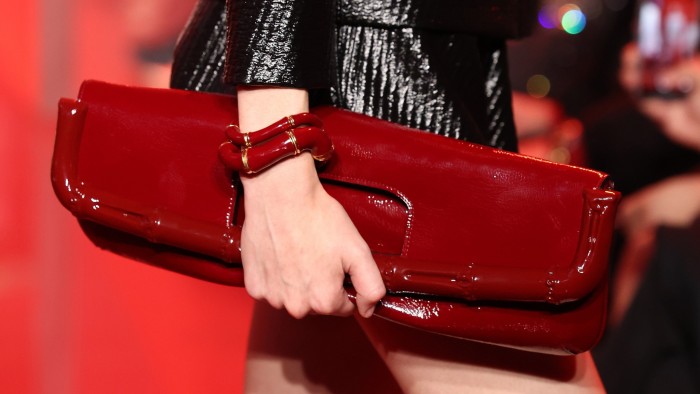Unlock the Editor’s Digest for free
Roula Khalaf, Editor of the FT, selects her favourite stories in this weekly newsletter.
What does a mass-market carmaker have in common with a luxury goods provider? Investors may well be pondering that question as they digest news that Luca de Meo, lifetime car executive and architect of Renault’s nifty turnaround, has quit to lead Gucci parent company Kering.
In theory, there is little overlap between the two jobs. True, at the very top of the heap, businesses selling super-premium cars and buttery-soft handbags do seem to have converged — as evidenced by the high margins and high valuations of Ferrari and Hermès.
But the distance between Renault and Kering is much greater. While Renault has brushed up its product offering, the French carmaker’s turnaround was, in essence, about cost and capacity cuts. Luxury, meanwhile, is about growing sales — something that Kering’s ailing Gucci brand is failing to do.
Dig a little deeper, and de Meo’s appointment makes more sense. For one thing, while luxury’s equity story is not centred on efficiency, a little discipline never goes amiss. Kering could probably do with some. UBS forecasts that Gucci sales this year will be about 30 per cent lower than in 2018, while its store count at the end of last year was about 13 per cent higher. Financially, too, Kering is more thinly stretched than its peers, with 2024 net debt of more than twice its ebitda, and has embarked on a programme to offload stakes in its real estate portfolio.
Nor would it hurt Kering to have a more traditional approach to governance. Major shareholder François-Henri Pinault occupies the chair and chief executive seats, with two deputy CEOs reporting to him. Such structures are perhaps palatable when companies do well, but become less so when their sales are sinking. The appointment of a new, experienced chief executive will help allay concerns.
Even in the rarefied world of luxury, bosses need an eye for high-end talent as well as high-end fashion. Perhaps in recognition of this, the sector has started to appoint more outsiders. Chanel picked Leena Nair from Unilever for the top job in 2021, while Audemars Piguet plumped for Ilaria Resta, whose career had been built on consumer goods and fragrance, in 2023. Ferrari has performed strongly since the 2021 appointment of Benedetto Vigna, an electric components expert from STMicroelectronics with no prior luxury experience.
All this suggests that, while making cars is different to making couture, running a company is a transferable skill — which helps explain why Renault hit the skids on Monday morning, while Kering gained almost 12 per cent to about €24bn.

As de Meo goes one way, other executives might yet go the other. Mass-market car manufacturing is becoming commoditised; design will become an increasingly important competitive differentiator. The ascent of Tesla in part shows this is already the case. If the auto industry seeks new executive talent, the world of luxury may not be a bad place to look.
